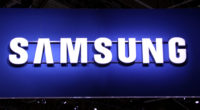Microsoft is bidding farewell to Bing Chat and ushering in Copilot as the focal point for its AI interactions. This comes less than a year after its Bing search engine got a lifeline with AI, wherein an AI-powered chatbot was integrated directly into its search results as part of Microsoft’s AI-powered ambitions. Now, less than a year later, the company is steering away from the Bing Chat branding, opting for Copilot, and the company announced the same at its Ignite 2023 event.
Going forward, both Bing Chat and Bing Chat Enterprise will be rebranded to Copilot, Microsoft noted. The rebranding from Bing Chat to Copilot aligns with OpenAI’s revelation that 100 million users engage with ChatGPT weekly. Despite a lucrative partnership, Microsoft and OpenAI now find themselves in competition for users seeking AI assistants, leading to the strategic positioning of Copilot.
Microsoft plans to make Copilot generally available on December 1, with a focus on commercial data protection. The licensing structure includes various Microsoft 365 plans, such as E3, E5, Business Standard, and Business Premium. Microsoft Edge for Business plays a role in safeguarding sensitive content accessed through Copilot, reinforcing the commitment to data protection. With more than 1 billion prompts and queries since the launch of Bing Chat, Copilot is positioned as a confident first step in generative AI for many organizations.
“At Microsoft Ignite 2023, we are announcing new innovations across Microsoft Copilot—one copilot experience that runs across all our surfaces, understanding your context on the web, on your PC, and at work to bring the right skills to you when you need them across work and life. Microsoft is the Copilot company. And soon there will be a Copilot for everyone and for everything you do,” Colette Stallbaumer, General Manager, Microsoft 365 and Future of Work, wrote in a blog post on the matter.
In a nutshell, the rebranded Copilot emerges as a dual offering, catering to both free and paid users. The free version, accessible in Bing and Windows, serves as an entry point for users. Simultaneously, Copilot for Microsoft 365 positions itself as the premium, subscription-based option. This tiered approach caters to diverse user needs while ensuring a seamless AI experience. And in similar news, Microsoft noted that developers will soon be able to publish their plugins for Copilot. This will be possible via Microsoft Partner Center. Copilot will also be able to take notes during Teams meetings starting sometime next year, and users can even tell the assistant to include specific information, provide answers, or even write long posts or review key happenings throughout the day.
Microsoft adopts distinct authentication mechanisms for business and consumer users. Business users log in with an Entra ID, emphasizing Microsoft’s commitment to commercial data protection. In contrast, consumers require a Microsoft Account for access to the free Copilot service. To allay privacy concerns, Microsoft is also promising to bring robust data protection measures. Corporate users logging in with an Entra ID benefit from “commercial data protection,” ensuring that their data remains secure and is not utilized for training AI models. Microsoft is further enhancing Copilot’s capabilities by introducing support for OpenAI GPTs (Generative Pre-trained Transformers). This addition allows users to create tailored versions of Copilot for specific tasks, expanding its versatility and creative potential. The synergy between GPTs and Copilot opens new opportunities for both citizen and professional developers.
The Tech Portal is published by Blue Box Media Private Limited. Our investors have no influence over our reporting. Read our full Ownership and Funding Disclosure →






